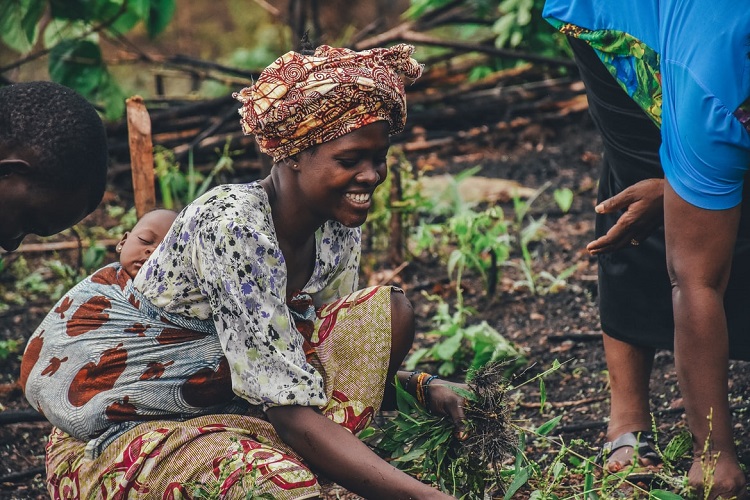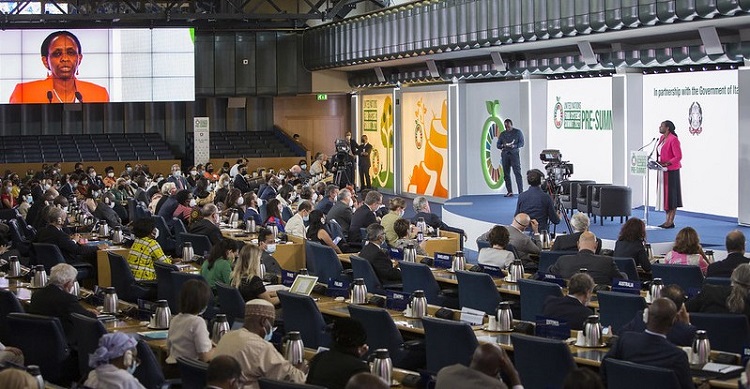Lora Forsythe, Fiorella Picchioni, Gillian Summers |
International Women’s Day (IWD) is an important day to highlight the achievements of women in agriculture, food and natural resources, which are often made invisible. The day is also an opportunity for NRI’s Gender and Social Difference (GSD) Development Programme to critically reflect on the past year and its future direction. This will enable us to identify ways our research can address important gaps in knowledge related to gender equality and transformative change.
The GSD Development Programme is marking IWD 2022 by curating a series of opinion pieces by staff and students, some of whom specialise in gender and social difference research, and others who recognise the value of using a ‘gendered lens’ in their work on natural resources, agricultural development and food systems. In this pluralistic selection of opinion pieces, authors reflect on gender, racial and class inequalities in their area of research or personal experience and consider strategies to overcome the challenges. By taking an approach that values social science and natural science perspectives, the opinion piece series will outline areas where gender analysis and other intersectional research have changed in the past few years and areas where they can be deepened analytically and conceptually.
others who recognise the value of using a ‘gendered lens’ in their work on natural resources, agricultural development and food systems. In this pluralistic selection of opinion pieces, authors reflect on gender, racial and class inequalities in their area of research or personal experience and consider strategies to overcome the challenges. By taking an approach that values social science and natural science perspectives, the opinion piece series will outline areas where gender analysis and other intersectional research have changed in the past few years and areas where they can be deepened analytically and conceptually.
Reflecting on the past few years there has been significant momentum around feminist, civil rights and decolonial movements, which has influenced change - from new conversations to new legislation. Research in the agriculture, food and natural resource sector has not been unaffected by this. Change has happened in some very direct and visible ways – from the language used at conferences and international summits, increased emphasis on gender transformative approaches which deal with the root causes of gender inequality, initiatives creating shared research agendas and new partnerships. From subtle to more obvious changes, it points to the increasing demand for transformative change in agriculture, food and natural resources praxis, with a gender and social difference lens.
 This momentum has opened further spaces within our own institute. A funded research group in Gender and Social Difference has been established and we have launched a module on gender and social difference for our new MSc on Transformative Change. There are several new PhD students undertaking innovative work on inequalities, including a PhD student with a prestigious Vice-Chancellor’s scholarship who will be examining gender-based violence in food systems.
This momentum has opened further spaces within our own institute. A funded research group in Gender and Social Difference has been established and we have launched a module on gender and social difference for our new MSc on Transformative Change. There are several new PhD students undertaking innovative work on inequalities, including a PhD student with a prestigious Vice-Chancellor’s scholarship who will be examining gender-based violence in food systems.
While there is hope that the momentum and spaces will grow over time, it is vitally important to continue questioning whether or not these changes are transformative and sustainable, and if not, where possible, to devise ways to make them so. A key part of gendered transformative change is to recognise that gender equality is an intrinsic value, and not an instrument to achieve other goals. Without recognition and realisation of the intrinsic importance of gender equality, efforts to reduce inequalities as part of another agenda, such as climate change, can be at risk of being chipped away.
Experiences from two significant global summits in 2021, COP26 and the UN Food Systems Summit, show areas of greater representation of women, indigenous people and other groups. However, representation alone isn’t enough. Not only are there important questions over the effectiveness of agreements resulting from COP26, but also issues around the recognition of systemic inequalities in the effects, causes and proposed ‘solutions’ of climate change, and also around the distribution of resources and decision-making power. What are the equity issues that were not considered in these summits and proposed solutions? Have all the players been listened to? Who is likely to be left out by technological solutions? Who is likely to suffer from the inertia demonstrated by powerful economies in the face of threatening ecological disaster? More questions that address the root causes of inequality need to be asked in research.
We argue for equality to be the starting point, and a gendered and social difference lens to be the foundation to the framing of research and practice in relation to agriculture, food systems and natural resources. From this point of view, it can emphasise the systemic and institutional changes that need to occur alongside other development objectives. Our opinion pieces start to ask these questions and examine the issues closely. We hope you enjoy reading these articles, which also serve as a starting point for internal dialogue on Gender and Social Difference, and an external consultation with our invited partners to create a shared research agenda in this area.
Read the articles in our IWD 2022 series here
Links:
NRI’s Gender and Social Difference (GSD) Development Programme
NRI's MSc on Transformative Change
International Women's Day 2022

